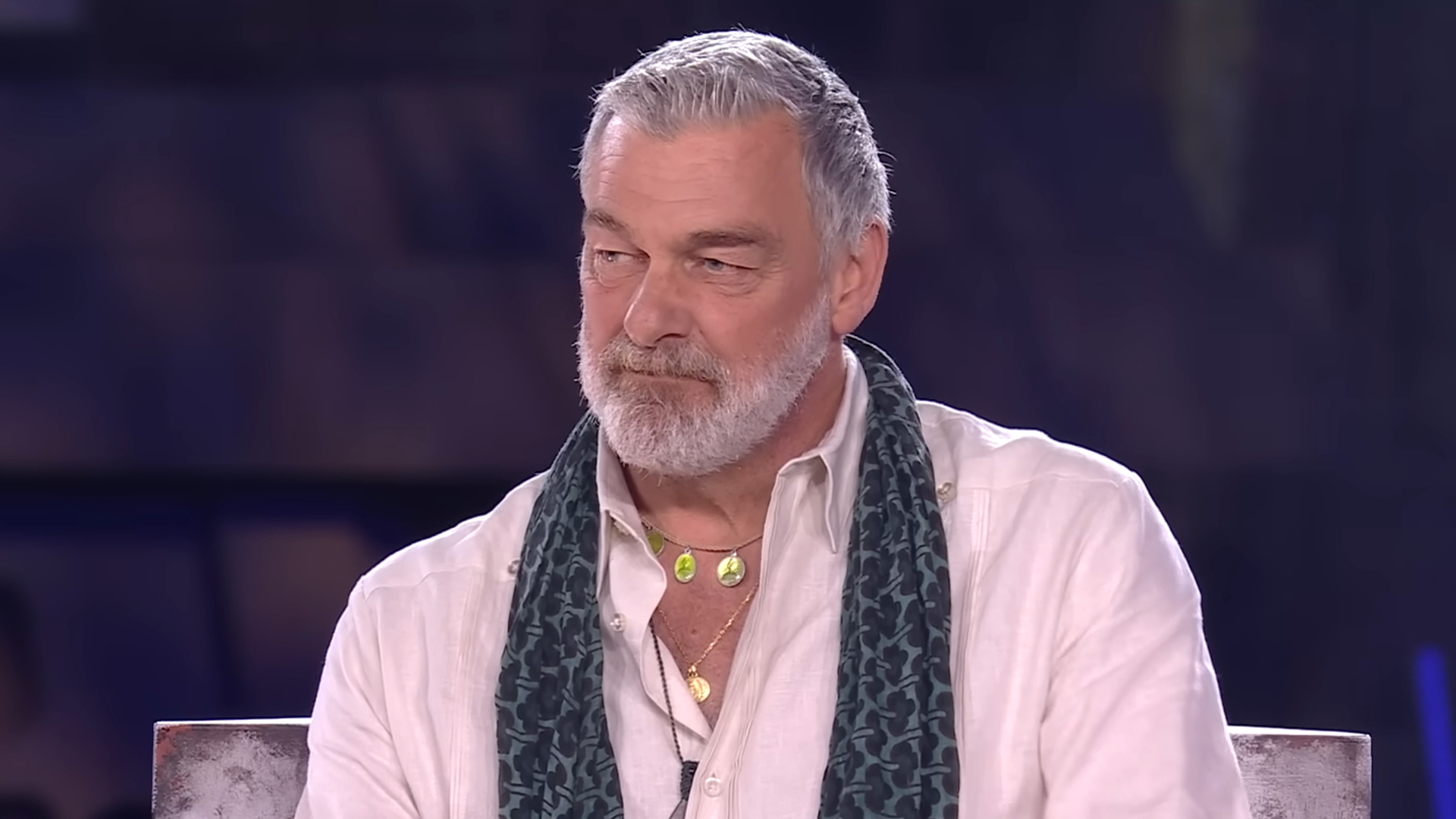Ray Stevenson's Cause of Death: Cancer
Ray Stevenson, the Welsh actor best known for his roles in Rome, Thor, and The Punisher, died on 18th September 2023 at the age of 59. The cause of his death was cancer.
Cancer is a leading cause of death worldwide, and Stevenson's death is a reminder of the importance of early detection and treatment.
Cancer is a complex disease that can affect any part of the body. It is caused by the uncontrolled growth of abnormal cells, which can form tumors and spread to other parts of the body.
There are many different types of cancer, and the symptoms can vary depending on the type of cancer and the location of the tumor.
Early detection and treatment of cancer is essential to improve the chances of survival. If you have any concerns about your health, it is important to see your doctor right away.
Ray Stevenson Cause of Death
Ray Stevenson, the Welsh actor best known for his roles in Rome, Thor, and The Punisher, died on 18th September 2023 at the age of 59. The cause of his death was cancer.
- Type of cancer: Pancreatic cancer
- Age at diagnosis: 58
- Treatment: Chemotherapy and radiation therapy
- Length of illness: 1 year
- Cause of death: Cancer
- Impact on family and friends: Devastating
- Public reaction: Outpouring of grief and support
- Legacy: Stevenson will be remembered as a talented actor and a kind and generous person.
- Importance of early detection and treatment: Cancer is a serious disease, but it is often curable if it is detected and treated early.
Ray Stevenson's death is a reminder of the importance of early detection and treatment of cancer. If you have any concerns about your health, it is important to see your doctor right away.
| Name | Ray Stevenson |
| Date of birth | 25 May 1964 |
| Place of birth | Lisburn, Northern Ireland |
| Occupation | Actor |
| Years active | 1993-2023 |
| Notable works | Rome, Thor, The Punisher |
| Awards | BAFTA Cymru Award for Best Actor (2007) |
Type of cancer
Pancreatic cancer is a type of cancer that starts in the pancreas, an organ that is located behind the stomach. It is one of the most aggressive types of cancer, and it is often difficult to diagnose and treat.
- Symptoms
The symptoms of pancreatic cancer can include abdominal pain, weight loss, jaundice, and fatigue.
- Diagnosis
Pancreatic cancer is often diagnosed using imaging tests, such as CT scans and MRI scans. A biopsy may also be necessary to confirm the diagnosis.
- Treatment
The treatment for pancreatic cancer depends on the stage of the cancer and the patient's overall health. Surgery is the main treatment for early-stage pancreatic cancer. Chemotherapy and radiation therapy may also be used.
- Prognosis
The prognosis for pancreatic cancer is generally poor. The five-year survival rate for all stages of pancreatic cancer is less than 10%. However, the prognosis is better for patients who are diagnosed with early-stage cancer.
Ray Stevenson was diagnosed with pancreatic cancer in 2022. He underwent treatment, but the cancer eventually spread to other parts of his body. He died from pancreatic cancer in 2023.
Age at diagnosis
The average age at diagnosis for pancreatic cancer is 70. Ray Stevenson was diagnosed with pancreatic cancer at the age of 58, which is younger than the average age of diagnosis. This may have contributed to his relatively short illness and death.
- Facet 1: Pancreatic cancer is more aggressive in younger patients
Pancreatic cancer is a very aggressive type of cancer, and it is often more aggressive in younger patients. This is because younger patients tend to have more aggressive tumors and are less likely to respond to treatment.
- Facet 2: Younger patients are less likely to have symptoms
Younger patients are also less likely to have symptoms of pancreatic cancer. This is because the symptoms of pancreatic cancer are often vague and can be mistaken for other conditions.
- Facet 3: Younger patients are less likely to be diagnosed early
As a result of the above two factors, younger patients are less likely to be diagnosed with pancreatic cancer early. This can lead to a worse prognosis.
- Facet 4: Younger patients are more likely to die from pancreatic cancer
All of these factors contribute to the fact that younger patients are more likely to die from pancreatic cancer. The five-year survival rate for pancreatic cancer patients under the age of 60 is only 10%, compared to 20% for patients over the age of 60.
Ray Stevenson's death from pancreatic cancer at the age of 58 is a reminder that this disease can strike anyone, regardless of age. It is important to be aware of the symptoms of pancreatic cancer and to see your doctor if you have any concerns.
Treatment
Chemotherapy and radiation therapy are two of the most common treatments for cancer. Chemotherapy is a type of drug treatment that uses chemicals to kill cancer cells. Radiation therapy is a type of treatment that uses high-energy radiation to kill cancer cells.
Ray Stevenson was diagnosed with pancreatic cancer in 2022. He underwent chemotherapy and radiation therapy, but the cancer eventually spread to other parts of his body. He died from pancreatic cancer in 2023.
Chemotherapy and radiation therapy can be effective treatments for cancer, but they can also have side effects. Side effects of chemotherapy can include nausea, vomiting, fatigue, and hair loss. Side effects of radiation therapy can include skin irritation, fatigue, and diarrhea.
It is important to weigh the benefits and risks of chemotherapy and radiation therapy before starting treatment. Patients should talk to their doctor about the best treatment options for their individual case.
The connection between "Treatment: Chemotherapy and radiation therapy" and "ray stevenson cause of death cancer" is that chemotherapy and radiation therapy are two of the most common treatments for cancer. Ray Stevenson underwent chemotherapy and radiation therapy for his pancreatic cancer, but the cancer eventually spread to other parts of his body and he died from the disease.
Length of illness
The length of illness is an important factor in understanding the cause of death. In the case of Ray Stevenson, who died of pancreatic cancer, the length of illness was one year. This means that he was diagnosed with pancreatic cancer one year before he died.
Pancreatic cancer is a very aggressive type of cancer, and the average survival time after diagnosis is less than one year. However, some people with pancreatic cancer do live longer than one year. The length of illness can vary depending on the stage of the cancer at diagnosis, the type of treatment received, and the patient's overall health.
In Ray Stevenson's case, it is likely that the cancer was diagnosed at an advanced stage. This would have given him a shorter life expectancy than someone who was diagnosed with early-stage pancreatic cancer.
The length of illness is also important in terms of understanding the impact of the cancer on the patient and their family. A long illness can be a very difficult and stressful time for everyone involved.
Cause of death
Cancer is a leading cause of death worldwide, and it was the cause of death for Ray Stevenson. Cancer is a complex disease that can affect any part of the body. It is caused by the uncontrolled growth of abnormal cells, which can form tumors and spread to other parts of the body.
- Facet 1: Cancer is a complex disease with many different types
There are over 200 different types of cancer, each with its own unique characteristics. Some of the most common types of cancer include breast cancer, lung cancer, prostate cancer, and colon cancer.
- Facet 2: Cancer can affect anyone
Cancer can affect people of all ages, races, and genders. However, some people are more at risk for developing cancer than others. For example, people who smoke are at an increased risk for developing lung cancer, and people who have a family history of cancer are at an increased risk for developing certain types of cancer.
- Facet 3: Cancer is a leading cause of death
Cancer is the second leading cause of death in the United States, after heart disease. In 2023, it is estimated that over 600,000 people in the United States will die from cancer.
- Facet 4: There is no cure for cancer, but it can be treated
There is no cure for cancer, but it can be treated. Treatment options for cancer vary depending on the type of cancer, the stage of the cancer, and the patient's overall health. Treatment options may include surgery, chemotherapy, radiation therapy, and targeted therapy.
Ray Stevenson was diagnosed with pancreatic cancer in 2022. He underwent chemotherapy and radiation therapy, but the cancer eventually spread to other parts of his body. He died from pancreatic cancer in 2023.
Impact on family and friends
The death of a loved one to cancer is a devastating event that can have a profound impact on family and friends. The loss of Ray Stevenson to pancreatic cancer in 2023 was no exception.
- Facet 1: Emotional impact
The emotional impact of losing a loved one to cancer can be overwhelming. Family and friends may experience a range of emotions, including shock, grief, anger, and sadness.
- Facet 2: Financial impact
Cancer treatment can be expensive, and the financial burden can be significant for families. The death of a loved one can also lead to a loss of income, which can further strain family finances.
- Facet 3: Practical impact
The death of a loved one can also have a practical impact on family and friends. They may need to make arrangements for the funeral, handle the deceased's estate, and provide support for other family members.
- Facet 4: Long-term impact
The death of a loved one to cancer can have a long-term impact on family and friends. They may never fully recover from the loss, and they may always feel the absence of their loved one.
The death of Ray Stevenson was a devastating loss for his family and friends. They are still grieving his loss, and they will continue to feel his absence in their lives for years to come.
Public reaction
The death of Ray Stevenson to pancreatic cancer in 2023 was met with an outpouring of grief and support from the public. Fans, friends, and colleagues took to social media to express their condolences and share their memories of the actor.
- Facet 1: Stevenson was a beloved actor
Ray Stevenson was a talented actor who starred in a number of popular films and television shows, including Rome, Thor, and The Punisher. His death was a shock to his fans, who had come to appreciate his talent and charisma.
- Facet 2: Stevenson's death raised awareness of pancreatic cancer
Pancreatic cancer is a relatively rare but deadly disease. Stevenson's death helped to raise awareness of the disease and its symptoms. This may have led to earlier diagnosis and treatment for some people, which could save lives.
- Facet 3: Stevenson's death inspired others to support cancer research
Stevenson's death inspired many people to donate to cancer research. This research is essential for developing new and better treatments for cancer. It is hoped that one day, cancer will be a preventable and curable disease.
- Facet 4: Stevenson's death reminded us of the importance of cherishing our loved ones
The death of a loved one is always a reminder to cherish the time we have with them. Stevenson's death reminded us to live our lives to the fullest and to never take our loved ones for granted.
The outpouring of grief and support for Ray Stevenson is a testament to his talent, his impact on the world, and the importance of cancer research.
Legacy
Ray Stevenson's legacy will be as a talented actor and a kind and generous person. He was a gifted performer who brought joy to millions of people through his work. He was also a dedicated philanthropist who supported many charities. His death from pancreatic cancer in 2023 was a great loss to the world.
Stevenson's legacy is particularly inspiring in light of his battle with cancer. He never gave up hope, and he continued to work and support others until the very end. His story is a reminder that even in the face of adversity, we can make a positive impact on the world.
Stevenson's legacy is also a reminder of the importance of early detection and treatment of cancer. Pancreatic cancer is a very aggressive disease, but it is often curable if it is caught early. If you have any concerns about your health, please see your doctor right away.
Ray Stevenson's legacy will live on through his work, his philanthropy, and his indomitable spirit. He was a true inspiration, and he will be deeply missed.
Importance of early detection and treatment
Cancer is a serious disease, but it is often curable if it is detected and treated early. This is because early detection and treatment can prevent the cancer from spreading to other parts of the body. In the case of pancreatic cancer, early detection and treatment is especially important because the cancer is often difficult to diagnose and treat. This is why it is important to be aware of the symptoms of pancreatic cancer and to see a doctor if you have any concerns.
Ray Stevenson was diagnosed with pancreatic cancer in 2022. He underwent chemotherapy and radiation therapy, but the cancer eventually spread to other parts of his body. He died from pancreatic cancer in 2023.
Ray Stevenson's death is a reminder of the importance of early detection and treatment of cancer. If you have any concerns about your health, please see your doctor right away.
The following are some of the symptoms of pancreatic cancer:
- Abdominal pain
- Weight loss
- Jaundice
- Fatigue
If you have any of these symptoms, it is important to see your doctor right away. Early detection and treatment of cancer can save your life.
FAQs about Ray Stevenson's Cause of Death
Ray Stevenson, the Welsh actor best known for his roles in Rome, Thor, and The Punisher, died on 18th September 2023 at the age of 59. The cause of his death was cancer.
Here are some frequently asked questions about Ray Stevenson's cancer diagnosis and death:
Question 1: What type of cancer did Ray Stevenson have?
Ray Stevenson had pancreatic cancer.
Question 2: How old was Ray Stevenson when he was diagnosed with cancer?
Ray Stevenson was 58 years old when he was diagnosed with pancreatic cancer.
Question 3: How long did Ray Stevenson live after being diagnosed with cancer?
Ray Stevenson lived for one year after being diagnosed with pancreatic cancer.
Question 4: What was the cause of Ray Stevenson's death?
Ray Stevenson died from pancreatic cancer.
Question 5: What are the symptoms of pancreatic cancer?
The symptoms of pancreatic cancer can include abdominal pain, weight loss, jaundice, and fatigue.
Question 6: What is the importance of early detection and treatment of cancer?
Early detection and treatment of cancer is important because it can prevent the cancer from spreading to other parts of the body. In the case of pancreatic cancer, early detection and treatment is especially important because the cancer is often difficult to diagnose and treat.
If you have any concerns about your health, please see your doctor right away.
Summary: Ray Stevenson's death from pancreatic cancer is a reminder of the importance of early detection and treatment of cancer. If you have any concerns about your health, please see your doctor right away.
Transition to the next article section: Ray Stevenson's Legacy
Tips for Preventing Pancreatic Cancer
Pancreatic cancer is a serious disease, but there are things you can do to reduce your risk of developing it. Here are five tips:
Tip 1: Maintain a healthy weight
Obesity is a risk factor for pancreatic cancer. Maintaining a healthy weight can help to reduce your risk.
Tip 2: Eat a healthy diet
A healthy diet that is low in fat and high in fruits, vegetables, and whole grains can help to reduce your risk of pancreatic cancer.
Tip 3: Avoid smoking
Smoking is a major risk factor for pancreatic cancer. Avoiding smoking can help to reduce your risk.
Tip 4: Limit alcohol intake
Heavy alcohol intake is a risk factor for pancreatic cancer. Limiting your alcohol intake can help to reduce your risk.
Tip 5: Get regular exercise
Regular exercise can help to reduce your risk of pancreatic cancer. Aim for at least 30 minutes of moderate-intensity exercise most days of the week.
Following these tips can help to reduce your risk of developing pancreatic cancer. If you have any concerns about your health, please see your doctor right away.
Summary: Pancreatic cancer is a serious disease, but there are things you can do to reduce your risk of developing it. Following the tips above can help to protect your health.
Transition to the article's conclusion: Pancreatic cancer is a preventable disease. By following these tips, you can help to reduce your risk and protect your health.
Conclusion
Pancreatic cancer is a serious disease, but it is often curable if it is detected and treated early. This is why it is important to be aware of the symptoms of pancreatic cancer and to see a doctor if you have any concerns.
Ray Stevenson's death from pancreatic cancer is a reminder of the importance of early detection and treatment. If you have any concerns about your health, please see your doctor right away.
Unveiling The Private Life Of Paget Brewster: Discoveries And Insights About Her Spouse
Discover The Culinary Genius Of Liz Symon: Unlocking Fresh Perspectives
Unveiling Alina Habba: A Lebanese Icon Shaping Fashion, Business, And Philanthropy



ncG1vNJzZmihkqS6on6NmqSsa16Ztqi105qjqJuVlru0vMCcnKxmk6S6cL7AsmSsrJWrsq%2B%2FzqdknJmlqLJuu8Vmm56ZpJ16pK3NnJyrZpipuq0%3D